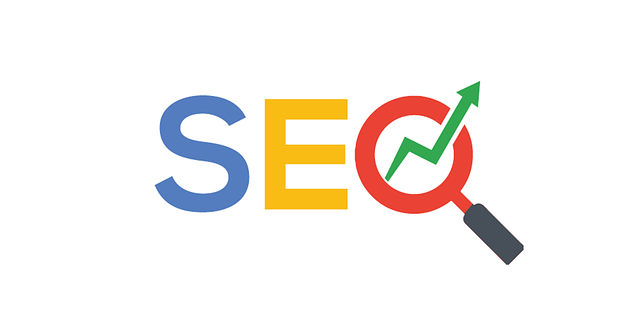Artificial Intelligence (AI) is revolutionizing Search Engine Optimization (SEO) through AI SEO Training, offering professionals advanced skills in content optimization using machine learning and natural language processing. This enhances website visibility, drives organic traffic by understanding user intent, and increases engagement. Automated keyword research tools uncover trends, while AI enables personalized content creation, saving time and resources. Link building strategies are also automated, providing a competitive edge. Ethical considerations, including responsible AI use, are crucial to maintaining digital marketing integrity. Advanced analytics track campaign success, and future AI SEO Training must adapt to evolving search engine interpretations and address ethical concerns for sustainable industry growth.
In today’s digital landscape, automated SEO strategies powered by Artificial Intelligence (AI) are revolutionizing content optimization. This article explores the transformative potential of AI SEO, offering a comprehensive guide for marketers and professionals. We dissect the fundamentals and benefits of AI SEO, from keyword research to content optimization and link building. Additionally, we delve into ethical considerations and provide insights on measuring success through advanced analytics. Furthermore, we glance into the future, highlighting emerging trends in AI SEO training and development.
Understanding AI SEO: The Basics and Benefits

In the realm of digital marketing, Artificial Intelligence (AI) has emerged as a game-changer, revolutionizing the way we approach Search Engine Optimization (SEO). AI SEO Training equips professionals with the skills to harness machine learning algorithms and natural language processing to optimize content for search engines. By understanding user intent and predicting search trends, AI enhances website visibility and drives organic traffic.
The benefits of AI SEO are multifaceted. It automates repetitive tasks like keyword research and on-page optimization, freeing up time for marketers to focus on strategic planning. Moreover, AI enables personalized content creation by analyzing vast amounts of data, resulting in tailored experiences that resonate with target audiences. This not only improves user engagement but also boosts search engine rankings, making AI SEO a powerful tool in today’s digital landscape.
Tools for Automated Keyword Research

In today’s digital era, AI SEO Training has emerged as a game-changer for content creators and marketers. Automated keyword research tools leverage advanced algorithms to analyze vast datasets and identify relevant keywords with precision. These tools not only save time but also provide insights that human researchers might miss, ensuring that your content is optimized for maximum visibility.
By integrating AI into SEO strategies, you can uncover hidden opportunities and trends in keyword search patterns. Automated tools offer dynamic reports, allowing you to stay ahead of the curve by understanding user intent and popular search terms. This data-driven approach enables you to create content that resonates with your audience and boosts your online presence, ultimately driving more traffic to your website.
Implementing AI-Powered Content Optimization

In today’s digital era, AI-powered content optimization is transforming the landscape of search engine optimization (SEO). By leveraging advanced algorithms and machine learning techniques, AI SEO Training enables businesses to streamline their content strategies and outperform competitors. This innovative approach goes beyond traditional keyword stuffing, focusing instead on semantic understanding and user intent to create compelling, contextually relevant content that captivates audiences and drives higher rankings on search engines.
Implementing AI in content optimization allows for data-driven insights, enabling marketers to identify trends, analyze competitor strategies, and personalize content at scale. These advanced tools can automate various tasks, from keyword research and sentiment analysis to topic clustering and meta tag generation. This not only saves time and resources but also ensures that content remains fresh, engaging, and aligned with the latest search engine algorithms.
Utilizing Machine Learning for Link Building Strategies

In the realm of AI SEO Training, machine learning algorithms are transforming link building strategies. These advanced technologies can analyze vast amounts of data to identify patterns and trends in backlink profiles, enabling more precise and effective link acquisition. By leveraging natural language processing (NLP) and predictive analytics, AI models can scout for high-quality link opportunities that align with a website’s niche and audience. This not only enhances the relevance and authority of acquired backlinks but also ensures a more organic growth trajectory.
Furthermore, machine learning algorithms can automate the process of outreach and engagement, saving time and resources. These systems can personalize communication based on historical data and website behavior, increasing the likelihood of successful link building campaigns. In today’s digital era, where content is king and competition is fierce, AI-driven link building strategies offer a competitive edge, ensuring that websites not only stay relevant but also climb the ranks in search engine results pages.
Ethical Considerations in AI SEO Implementation

As AI continues to revolutionize the digital landscape, its implementation in SEO strategies raises important ethical considerations. The use of artificial intelligence for search engine optimization, or AI SEO, can provide significant advantages, such as data analysis at scale and personalized content creation. However, it’s crucial to maintain transparency and accountability in this process. Unethical practices like keyword stuffing or manipulating rankings through black-hat methods not only harm the user experience but also damage the integrity of search engines.
AI SEO Training programs play a vital role in addressing these concerns by educating professionals on responsible AI use. These courses should emphasize ethical guidelines, ensuring that AI tools are employed to enhance content quality and user satisfaction rather than for deceptive practices. By adopting best practices and staying informed about evolving ethical standards, SEO practitioners can leverage the power of AI while upholding fair and transparent digital marketing principles.
Measuring Success: Metrics and Analytics for AI SEO Campaigns

Measuring success is a critical aspect of any marketing campaign, and AI SEO is no exception. When it comes to evaluating the performance of automated SEO strategies, understanding key metrics becomes essential. By leveraging advanced analytics tools designed for AI SEO training, marketers can gain valuable insights into the effectiveness of their campaigns. These tools track various parameters, such as keyword rankings, organic traffic, click-through rates (CTRs), and bounce rates, providing data-driven evidence of a campaign’s impact.
For instance, tracking keyword positions over time reveals how well AI algorithms are optimizing content for search engines. Increasing organic traffic indicates successful implementation of automated SEO techniques, while high CTRs suggest that the strategies are attracting relevant audience interest. Analytics also help in identifying areas for improvement; for example, if bounce rates are high, it might signal a need to refine the content or target specific keywords more effectively.
Future Trends in AI SEO Training and Development

The future of AI SEO Training is set to be transformative, driven by advancements in natural language processing and machine learning. As search engines become increasingly sophisticated, understanding user intent and context will be paramount. AI SEO training programs will need to evolve to teach models how to interpret complex queries, recognize semantic nuances, and adapt content strategies accordingly. This involves refining techniques for entity recognition, sentiment analysis, and contextual understanding to ensure that AI-driven SEO remains effective in a rapidly changing digital landscape.
Additionally, ethical considerations will play a central role in the development of AI SEO tools. As AI systems begin to make decisions about content optimization and link building, ensuring transparency, fairness, and accountability will be crucial. Training programs must address bias in data and algorithms, privacy implications, and the responsible use of AI to maintain public trust and ensure sustainable growth in the SEO industry.
